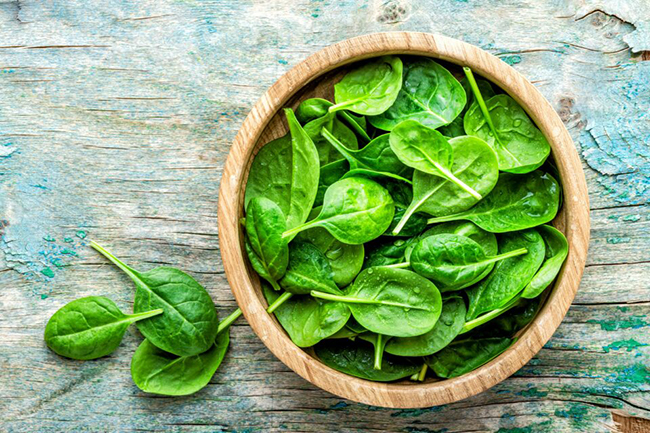A recent study published in the journal PNAS linked age-related memory loss to a diet low in flavanols.
The study found that replenishing these phytonutrients improved the performance of older adults on memory tests, indicating the importance of flavanols for optimal brain health in aging populations.
The research, which included more than 3,500 older adults, found a correlation between flavanol intake and memory performance. Particularly, adults over 60 whose diets were low in flavanols showed improved memory test scores after increasing their intake of these phytonutrients. The findings support the hypothesis that the aging brain requires certain nutrients to stay healthy, similar to the developing brain.
What are flavanols?
Flavanols, also known as catechins, are compounds naturally present in plants that possess antioxidant properties. Flavanols are the main polyphenols that give cocoa and dark chocolate their many health benefits.
Because flavanols are potent antioxidants, they can protect cells, including brain neurons, from oxidative stress. Oxidative stress is known to damage healthy cells and has been shown to play a role in the development and progression of chronic diseases, such as cancer, diabetes, heart disease and Alzheimer’s disease. The accumulation of oxidative damage in the brain as well as reduced antioxidant defenses are also thought to contribute to age-related memory deficits in older adults.
Because plant-based foods like tea, onions, kale, grapes, berries, tomatoes and lettuce contain high amounts of antioxidant flavanols, they are considered excellent foods for supporting a healthy brain. This means it is possible for older adults to maintain optimal brain performance by eating a diet rich in these brain superfoods.
Flavanol-rich diet does wonders for the hippocampus
In their paper, the researchers noted that cognitive aging occurs in the hippocampus based on multiple studies. This part of the brain is said to be crucial for learning and long-term episodic memory, and is what enables people to recall personal experiences.
Because there is evidence that diet – particularly flavanol consumption – can influence cognitive aging, the researchers investigated the effect of increased flavanol intake on hippocampal-dependent memory among older adults who infrequently consumed flavanol-containing foods. They also looked at the effect of the dietary intervention, which involved regular supplementation with cocoa extract for three years, over extended durations.
After a year of monitoring over 3,000 participants (mean age, 71), who were randomly assigned either cocoa extract or a placebo, the researchers found that increased dietary flavanol intake helped improve hippocampal-dependent memory in those with initially poor flavanol consumption. The improvements were quantified based on the participants’ scores on the ModRey test, which evaluates list learning and episodic memory recall.
The researchers also reported that the degree of improvement they observed on the ModRey test was associated with the magnitude of increase in flavanol biomarker concentrations in the urine of the participants, which further proves that flavanol intake significantly impacts memory performance.
This benefit, the researchers noted, may have to do with the ability of flavanols to promote angiogenesis, or the formation of new blood vessels. By increasing blood flow to the hippocampus, flavanols enable the brain to perform better, thus restoring memory and halting cognitive aging.
An earlier study published in Neurology also reported a similar benefit, but this time of flavonols. Like flavanols, flavonols are a class of flavonoids with potent antioxidant properties. They are the most ubiquitous flavonoids found in foods and are present in abundance in various fruits and vegetables.
After analyzing data from 961 participants of the Rush Memory and Aging Project, researchers found that higher intakes of flavonols were associated with slower rates of decline in global cognition, episodic memory, perceptual speed, semantic memory, working memory and visuospatial ability. The study specifically associated intake of two flavonols, namely, kaempferol and quercetin, with slower global cognitive decline in older adults.
Kaempferol, a widely studied antioxidant, is known for its beneficial effects against inflammatory-related diseases, such as cancer, cardiovascular disease and neurodegenerative disease. It can be found in superfoods like tea, broccoli, cabbage, kale, tomatoes, strawberries and grapes. Some popular herbs used in traditional medicine, like ginkgo biloba and moringa, and bee propolis are also rich sources of kaempferol.
Quercetin is a bright yellow pigment that’s widely distributed in plants. Another powerful antioxidant found in foods, quercetin has been found to help reduce inflammation, ease allergy symptoms, lower blood pressure and protect against Alzheimer’s disease and dementia. Rich sources of quercetin include capers, yellow and green peppers, shallots, asparagus, red apples, red grapes, berries and tea.
Flavanols are beneficial compounds that can support healthy brain function. To maintain optimal brain performance as you age, add flavanol-rich foods to your daily diet, such as tea, fresh fruits and plenty of green, leafy vegetables.



